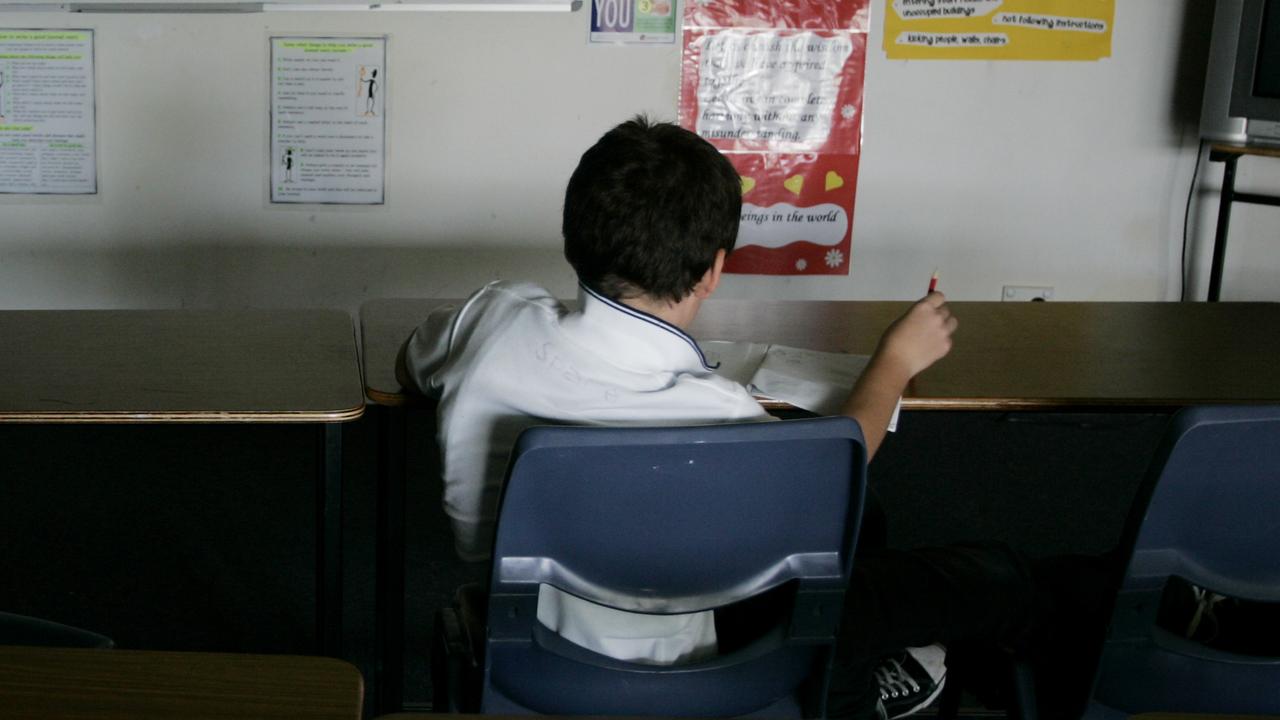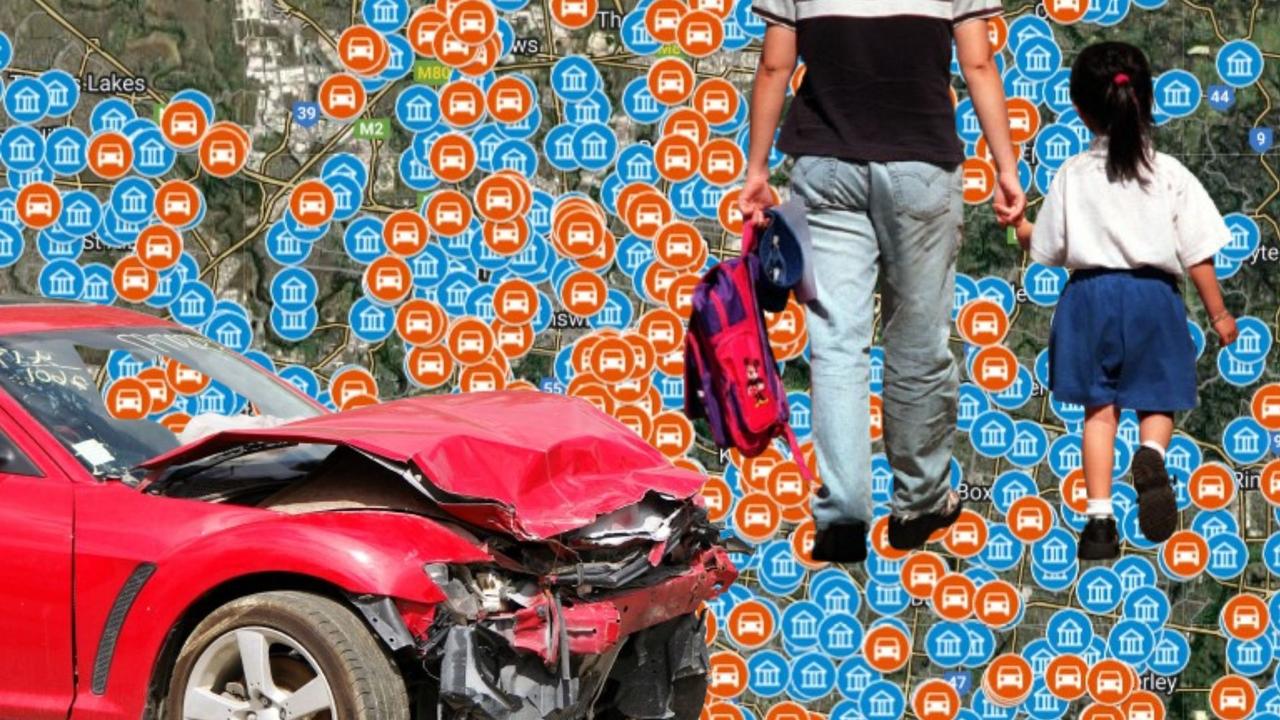Children as young as five are seeking help for self-harm and suicidal concerns
Children as young as five are seeking help for self-harm and suicidal concerns, as Victorian schools deal with an unprecedented surge in tragic deaths.
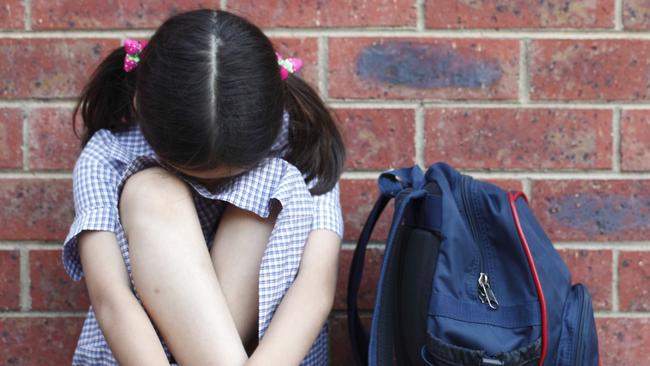
Education
Don't miss out on the headlines from Education. Followed categories will be added to My News.
Victorian schools are dealing with an unprecedented surge in self-harm and suicide attempts from students from prep upwards.
Fears of copycat self-harming and widespread discussion on social media are fuelling concerns about the wellbeing of children as young as five. The lockdown has further raised concerns.
The principal at one eastern suburbs school recently warned parents of a student’s self-harm attempt at school, noting that it had been shared on social media.
Another principal from a rural high school shared the sad news of a death by suicide of a year 11 student on May 3.
Other schools, including one state girls’ school, a bayside state secondary college, a Mount Waverley Catholic college and a boys’ school in the outer east have all invited students to contact counsellors after students attempted to take their own lives.
At one private girls’ school there are dozens of students on suicide watch, and a student’s absence from class will trigger an urgent response from teachers and a search of school grounds, including the top of a tall building.
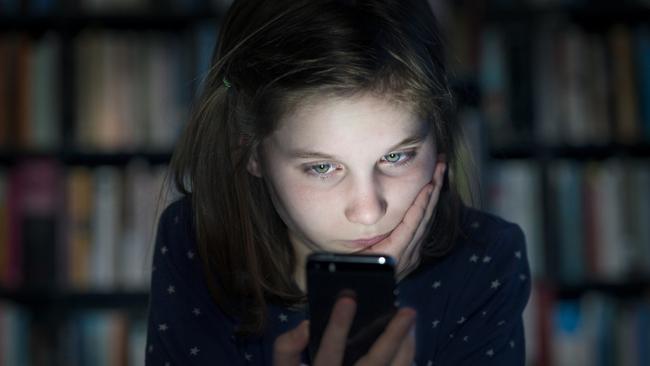
Two weeks ago, a 13-year-old girl, who was formerly at the school, took her own life. Students across the state are reporting confusion, anxiety, stress about exams, worries about friendships and school refusal.
Data from Kids Helpline shows 16 per cent of calls from children aged 5 to 12 are related to suicide concerns and self-harm and 26 per cent of calls from those aged 13-18.
The national service received 13,000 suicide-related contacts in 2020, with 1150 callers presenting with an immediate suicide issue.
More than one-third of contacts requiring intervention from emergency services involved suicide.
Kids Helpline virtual services manager Tony Fitzgerald said calls in all categories had soared during Covid-19, and the demand had continued this year.
“There are long-term effects from last year, even with the youngest kids who are struggling to cope with their anxiety on top of everyday pressures,” he said.
The Australian Psychological Society called on the federal government to fund at least one school psychologist for every 500 students. Instead, money was committed to the national chaplain program.
A state Education Department spokesman said the government had accelerated the $51.2m Mental Health Practitioners in secondary schools’ program. Primary and secondary schools were also doing what they could to calm and support children.
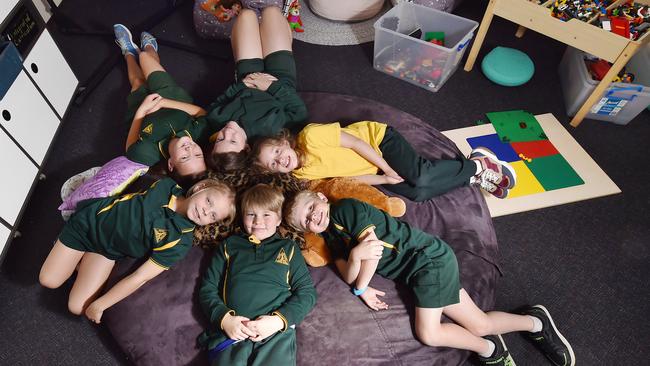
At Devon Meadows Primary School, strategies include classroom calm spaces and sensory tubs, a green sensory play zone and a 10-minute wellbeing break after lunch involving yoga, meditation or colouring-in.
“If kids are having a particularly bad day, they have a chance to reset themselves,” Wellbeing leader and teacher Teag Pohlner said.
Monash University is also trialling Ash, an online “chatbot” for young people.


